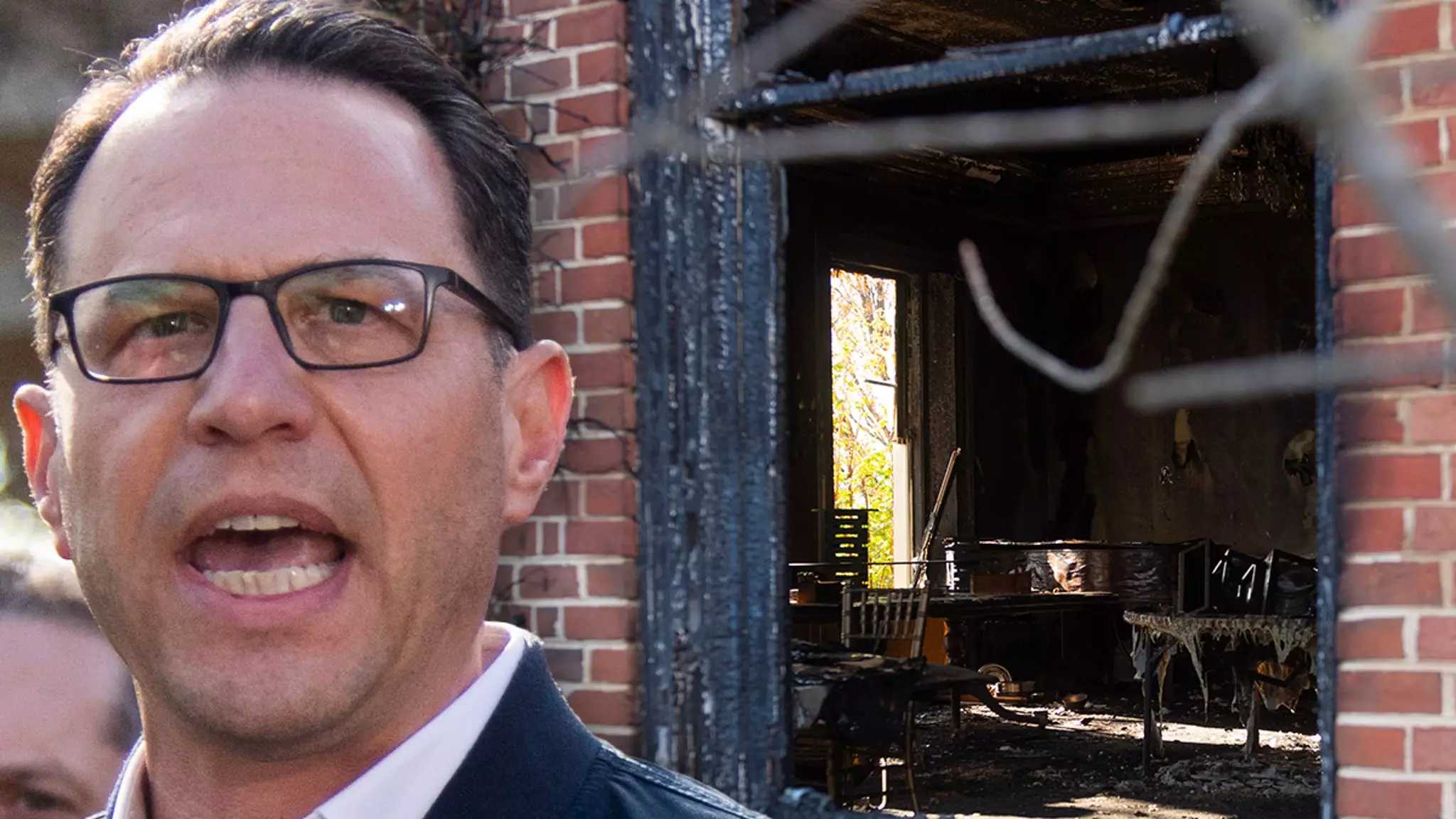In a disturbing turn of events, the Pennsylvania Governor’s Residence became the scene of an alarming arson attack that resonates far beyond its physical damage. Following a joyous celebration of Passover, a Jewish holiday deeply rooted in themes of liberation and resilience, Governor Josh Shapiro and his family faced a horrifying violation of safety when a man allegedly attempted to set fire to their home. The accused, 38-year-old Cody Balmer, allegedly orchestrated a carefully planned invasion, leaving behind a scene of destruction while awakening the state’s leader at an unthinkable hour.
The Significance of the Attack
This incident transcends mere property damage; it strikes at the heart of societal values. Passover symbolizes freedom and the struggle against oppression, making it particularly poignant that such an attack occurred during this sacred time. Shapiro, whose Jewish identity could be a motivating factor for the attack, expressed an unwavering resolve against the hatred that fueled this incident. His perseverance is commendable—refusing to allow fear to infiltrate his family’s sense of safety or the essence of a religious celebration.
The destruction within the residence, characterized by ash-covered floors and shattered windows, serves as a grim reminder of what we stand to lose when violence dictates our lives. The act of defiance evident in the surroundings bears an echo of the resilience embodied by countless Jewish communities throughout history, facing adversity with fortitude and determination.
The Allegations and Their Implications
Authorities have announced serious charges against Balmer, including attempted murder and terrorism. Such allegations bring forth critical conversations about the state of safety and security for public figures, particularly those who belong to minority communities. The assertion that Balmer used a homemade incendiary device indicates a disturbing trend towards planned, targeted violence. Unlike spontaneous acts of aggression, this reflects a calculated intent to instill fear in the community and disrupt the ongoing narrative of inclusivity and respect that we continually strive to uphold.
This incident raises pressing questions about the broader implications of political violence in America. Shapiro’s condemnation of such actions, regardless of their source, highlights an essential truth: violence undermines our collective integrity. When the “other side” is condemned for aggression, it is crucial to examine our actions as a community. Political strife must not devolve into hostility; rather, it should foster dialogue and understanding.
A Call to Action
In facing these challenges, we must acknowledge the need for robust dialogue within our community, where open conversations about diversity, acceptance, and mutual respect can flourish. The attack on the Governor’s Residence serves not just as a reminder of the ever-present threats we face but also as a rallying cry for unity against hate.
In the aftermath of this unsettling event, Governor Shapiro’s response is powerful. By highlighting both the historical context of the attack and the importance of communal solidarity, he calls for a steadfast resilience. Rather than succumb to fear and isolation, his commitment to staying united against hatred resonates deeply. It reminds us that strength lies not merely in individual survival but in collective resistance against tyranny in all its forms.

